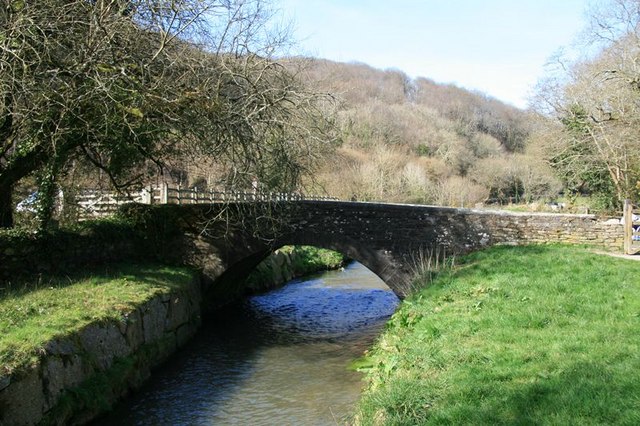London Apprentice on:
[Wikipedia]
[Google]
[Amazon]
London Apprentice ( kw, Oberden Loundres) is a village in south
 Today, the village (which retains a shop and a restaurant) caters mainly for tourists. The route of the narrow gauge railway from St Austell to Pentewan is now a footpath and cycle path, known as the Pentewan Trail. Kings Wood, a remnant of ancient woodland, owned by the
Today, the village (which retains a shop and a restaurant) caters mainly for tourists. The route of the narrow gauge railway from St Austell to Pentewan is now a footpath and cycle path, known as the Pentewan Trail. Kings Wood, a remnant of ancient woodland, owned by the
Cornwall
Cornwall (; kw, Kernow ) is a historic county and ceremonial county in South West England. It is recognised as one of the Celtic nations, and is the homeland of the Cornish people. Cornwall is bordered to the north and west by the Atlan ...
, England, UK, on the banks of St Austell River in the Pentewan Valley (where the population of the 2011 census was included) approximately two miles (3 km) south of St Austell
St Austell (; kw, Sans Austel) is a town in Cornwall, England, south of Bodmin and west of the border with Devon.
St Austell is one of the largest towns in Cornwall; at the 2011 census it had a population of 19,958.
History
St Austell was ...
.
The village is in the civil parish
In England, a civil parish is a type of Parish (administrative division), administrative parish used for Local government in England, local government. It is a territorial designation which is the lowest tier of local government below district ...
of Pentewan Valley and the ecclesiastical parish
A parish is a territorial entity in many Christian denominations, constituting a division within a diocese. A parish is under the pastoral care and clerical jurisdiction of a priest, often termed a parish priest, who might be assisted by one or m ...
of St Austell. It was named after the London Apprentice Inn, which formerly stood on the St Austell to Pentewan
Pentewan ( kw, Bentewyn, meaning ''foot of the radiant stream'') is a coastal village and former port in south Cornwall, England, United Kingdom. It is situated at south of St Austell at the mouth of the St Austell River.
Pentewan is in ...
road. The inn traded from 1815 to 1871 and probably longer.http://freepages.genealogy.rootsweb.ancestry.com/~kayhin/72264.html 1871 census
Tin-mining
In 1833, a coalyard was constructed on thePentewan Railway
The Pentewan Railway was a narrow gauge railway in Cornwall, England. It was built as a horse-drawn tramway carrying china clay from St Austell to a new harbour at Pentewan, and was opened in 1829. In 1874 the line was strengthened for locomot ...
situated near the inn to supply coal to the tin
Tin is a chemical element with the symbol Sn (from la, stannum) and atomic number 50. Tin is a silvery-coloured metal.
Tin is soft enough to be cut with little force and a bar of tin can be bent by hand with little effort. When bent, ...
mines at nearby Polgooth
Polgooth ( kw, Pollgoodh) is a former mining village in south Cornwall, England, United Kingdom. It lies mainly in the parish of St Mewan and partly in the parish of St Ewe. The nearest town is St Austell two miles (3.5 km) to the north-e ...
and the settlement may have arisen around this point. According to nineteenth-century census returns, most of the villagers were engaged in tin-mining, either in the stream-works of Wheal Virgin, close to London Apprentice, or in Polgooth. The Wheal Virgin works closed in 1874, and the Polgooth mine by 1900. The New Mills Primitive Methodist
The Primitive Methodist Church is a Methodist Christian denomination with the holiness movement. It began in England in the early 19th century, with the influence of American evangelist Lorenzo Dow (1777–1834).
In the United States, the Primit ...
church was built in 1870 and closed in 1988, though the building still stands.
The village today
 Today, the village (which retains a shop and a restaurant) caters mainly for tourists. The route of the narrow gauge railway from St Austell to Pentewan is now a footpath and cycle path, known as the Pentewan Trail. Kings Wood, a remnant of ancient woodland, owned by the
Today, the village (which retains a shop and a restaurant) caters mainly for tourists. The route of the narrow gauge railway from St Austell to Pentewan is now a footpath and cycle path, known as the Pentewan Trail. Kings Wood, a remnant of ancient woodland, owned by the Woodland Trust
The Woodland Trust is the largest woodland conservation charity in the United Kingdom and is concerned with the creation, protection, and restoration of native woodland heritage. It has planted over 50 million trees since 1972.
The Woodland Tr ...
, lies to the south of the village. Woodland Trust
References
{{authority control Villages in Cornwall